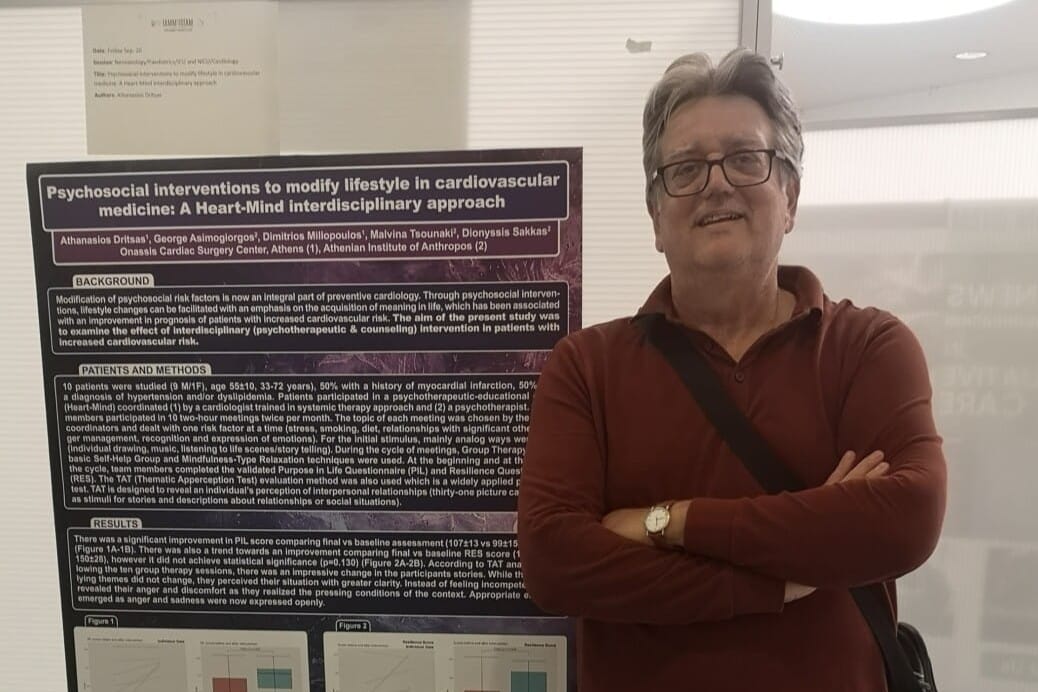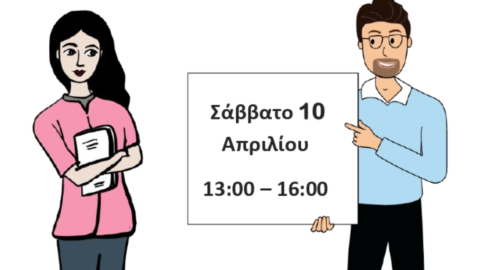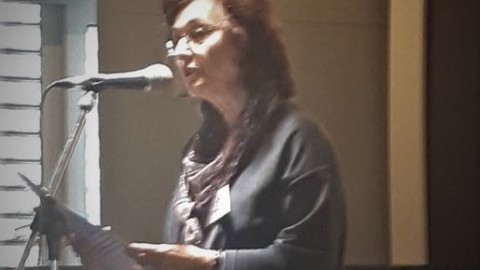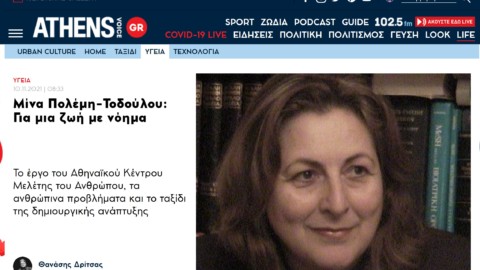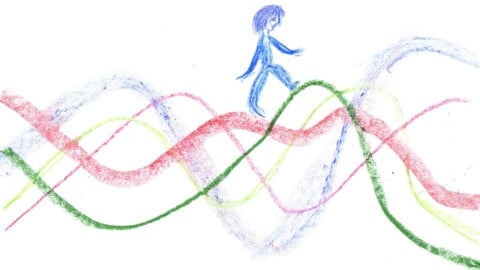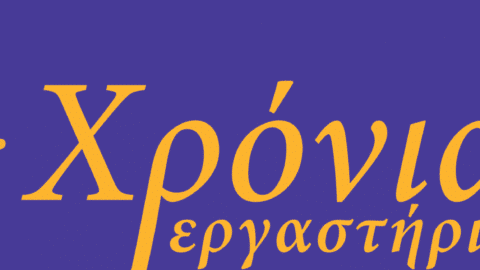Ο συνεργάτης του ΑΚΜΑ, καρδιολόγος καθ. κ. Θανάσης Δρίτσας παρουσίασε τα αποτελέσματα της έρευνας που πραγματοποιήθηκε στο ΑΚΜΑ στο πλαίσιο των κύκλων της Ομάδας Καρδιά-Νους, στο κορυφαίο συνέδριο που έγινε σε συνεργασία της International Association of Music and Medicine (IAMM) και της International Society for Arts in Medicine (ISfAM), που διεξήχθη στο Βερολίνο, 18-21 Σεπτεμβρίου 2024, στο Conference Center του περίφημου Πανεπιστημιακού Νοσοκομείου Charite/Berlin.
Η εργασία προξένησε εξαιρετικό ενδιαφέρον με 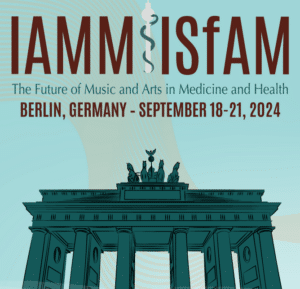 έμφαση στο διεπιστημονικό χαρακτήρα της Ομάδας Καρδιά-Νους (ψυχοθεραπεία, καρδιολογία, νευροεπιστήμη, καρδιακή αποκατάσταση, προληπτική ιατρική, θεραπεία μέσω τεχνών και μουσικής) και θεωρήθηκε από τους συνέδρους ότι η προσέγγιση της Ομάδας Καρδιά-Νους του ΑΚΜΑ προσφέρει ένα πρωτοποριακό μάθημα για την ολιστική προσέγγιση και ουσιώδη σύνδεση βιολογικών δεδομένων, ψυχικής υγείας και συμπεριφοράς όχι μόνον στον καρδιαγγειακό ασθενή αλλά γενικά στον κάθε ασθενή.
έμφαση στο διεπιστημονικό χαρακτήρα της Ομάδας Καρδιά-Νους (ψυχοθεραπεία, καρδιολογία, νευροεπιστήμη, καρδιακή αποκατάσταση, προληπτική ιατρική, θεραπεία μέσω τεχνών και μουσικής) και θεωρήθηκε από τους συνέδρους ότι η προσέγγιση της Ομάδας Καρδιά-Νους του ΑΚΜΑ προσφέρει ένα πρωτοποριακό μάθημα για την ολιστική προσέγγιση και ουσιώδη σύνδεση βιολογικών δεδομένων, ψυχικής υγείας και συμπεριφοράς όχι μόνον στον καρδιαγγειακό ασθενή αλλά γενικά στον κάθε ασθενή.
Για τη διεξαγωγή της έρευνας συνεργάστηκαν με τους συντονιστές της Ομάδας Καρδιάς-Νους, καθ. κ Θανάση Δρίτσα και τον ψυχοθεραπευτή κ. Γιώργο Ασημογιώργο, ο Διευθυντής του ΑΚΜΑ κ Διονύσης Σακκάς, ο ψυχίατρος και μέλος της Επιστημονικής Ομάδας του ΑΚΜΑ κ Γιώργος Γουρνάς, η ψυχολόγος και συνεργάτιδα του ΑΚΜΑ, κ Μαλβίνα Τσουνάκη, ο ιατρός του Ωνάσειου Καρδιοχειρουργικού Κέντρου κ. Δημήτρης Μηλιόπουλος ενώ τα μέλη των ομάδων Καρδιάς -Νους συμμετείχαν ενεργά με προσφορά των ερευνητικών δεδομένων μέσω των ερωτηματολογίων.
Παρατίθενται παρακάτω τα κύρια στοιχεία της παρουσίασης και abstract της εργασίας έχει καταχωρηθεί στο επιστημονικό περιοδικό Music and Medicine/Vol. 16 No. 3 (2024): Music and Medicine July: Special Issue Berlin Congress Abstract Compilation
Psychosocial interventions to modify lifestyle in cardiovascular medicine: A Heart-Mind interdisciplinary approach Athanasios Dritsas (1) , George Asimogiorgos (2) , Dimitrios Miliopoulos (1) , Malvina Tsounaki2, Dionyssis Sakkas (2). Onassis Cardiac Surgery Center, Athens (1), Athenian Institute of Anthropos (2).
BACKGROUND: Modification of psychosocial risk factors is now an integral part of preventive cardiology. Through psychosocial interventions, lifestyle changes can be facilitated with an emphasis on the acquisition of meaning in life, which has been associated with an improvement in prognosis of patients with increased cardiovascular risk. The aim of the present study was to examine the effect of interdisciplinary (psychotherapeutic & counseling) intervention in patients with increased cardiovascular risk.
PATIENTS AND METHODS: 10 patients were studied (9 M/1F), age 55±10, 33-72 years), 50% with a history of myocardial infarction, 50% with a diagnosis of hypertension and/or dyslipidemia. Patients participated in a psychotherapeutic-educational group (Heart-Mind) coordinated (1) by a cardiologist trained in systemic therapy approach and (2) a psychotherapist. Group members participated in 10 two-hour meetings twice per month. The topic of each meeting was chosen by the Group coordinators and dealt with one risk factor at a time (stress, smoking, diet, relationships with significant others, anger management, recognition and expression of emotions). For the initial stimulus, mainly analog ways were used (individual drawing, music, listening to life scenes/story telling). During the cycle of meetings, Group Therapy (SCIT), basic Self-Help Group and Mindfulness-Type Relaxation techniques were used. At the beginning and at the end of the cycle, team members completed the validated Purpose in Life Questionnaire (PIL) and Resilience Questionnaire (RES). The TAT (Thematic Apperception Test) evaluation method was also used which is a widely applied projective test. TAT is designed to reveal an individual’s perception of interpersonal relationships (thirty-one picture cards serve as stimuli for stories and descriptions about relationships or social situations).
RESULTS: There was a significant improvement in PIL score comparing final vs baseline assessment (107±13 vs 99±15, p=0.024) (Figure 1A-1B). There was also a trend towards an improvement comparing final vs baseline RES score (162±31 vs 150±28), however it did not achieve statistical significance (p=0.130) (Figure 2A-2B). According to TAT analysis following the ten group therapy sessions, there was an impressive change in the participants stories. While the underlying themes did not change, they perceived their situation with greater clarity. Instead of feeling incompetent, they revealed their anger and discomfort as they realized the pressing conditions of the context. Appropriate emotion emerged as anger and sadness were now expressed openly.
CONCLUSION: Heart-Mind interdisciplinary approach in the form of group psychotherapy may be a valuable psychosocial intervention to facilitate clinically important lifestyle changes in cardiovascular disease mainly via an enhanced sense of purpose in life. There is a strong indication that long term participation in interdisciplinary heart-mind approach programs will offer even greater change in patient lives and their cardiovascular health.
REFERENCES
Short-Term Intervention with the Synallactic Collective Image Technique (SCIT). Vassiliou, G.A., Vassiliou, V.G. (1985). Short-Term Intervention with the Synallactic Collective Image Technique. In: Pichot, P., Berner, P., Wolf, R., Thau, K. (eds) Psychiatry the State of the Art. Springer, Boston, MA. https://doi.org/10.1007/978-1-4684-4697-511
The PIL test is a 20-item self-report attitudinal scale designed to measure the extent to which a respondent perceives a general sense of meaning and purpose in life or respectively suffers from an “existential vacuum” (Frankl, (1959/1985). All questions range from “Strongly Disagree” (1) to “Strongly Agree” (7). This assessment is based on the work of Crumbaugh, J., & Maholick, L. (1964). An experimental study of existentialism: The psychometric approach to Frankl’s concept of noogenic neurosis. Journal of Clinical Psychology, 20, 200-207.
Self-Evaluation-Resilience (How resilient are you?). The self-evaluation questionnaire consists of 21 questions – 3 for each of the seven categories or areas of development in the selection box. The seven categories are: perception, getting a grip of one’s life, forming relationships, acceptance and optimistic thinking (confidence in future), orientation on solution and aims, healthy lifestyle, self-efficacy. http://www.resilience-project.eu/index.php-id=29&L=10.html


